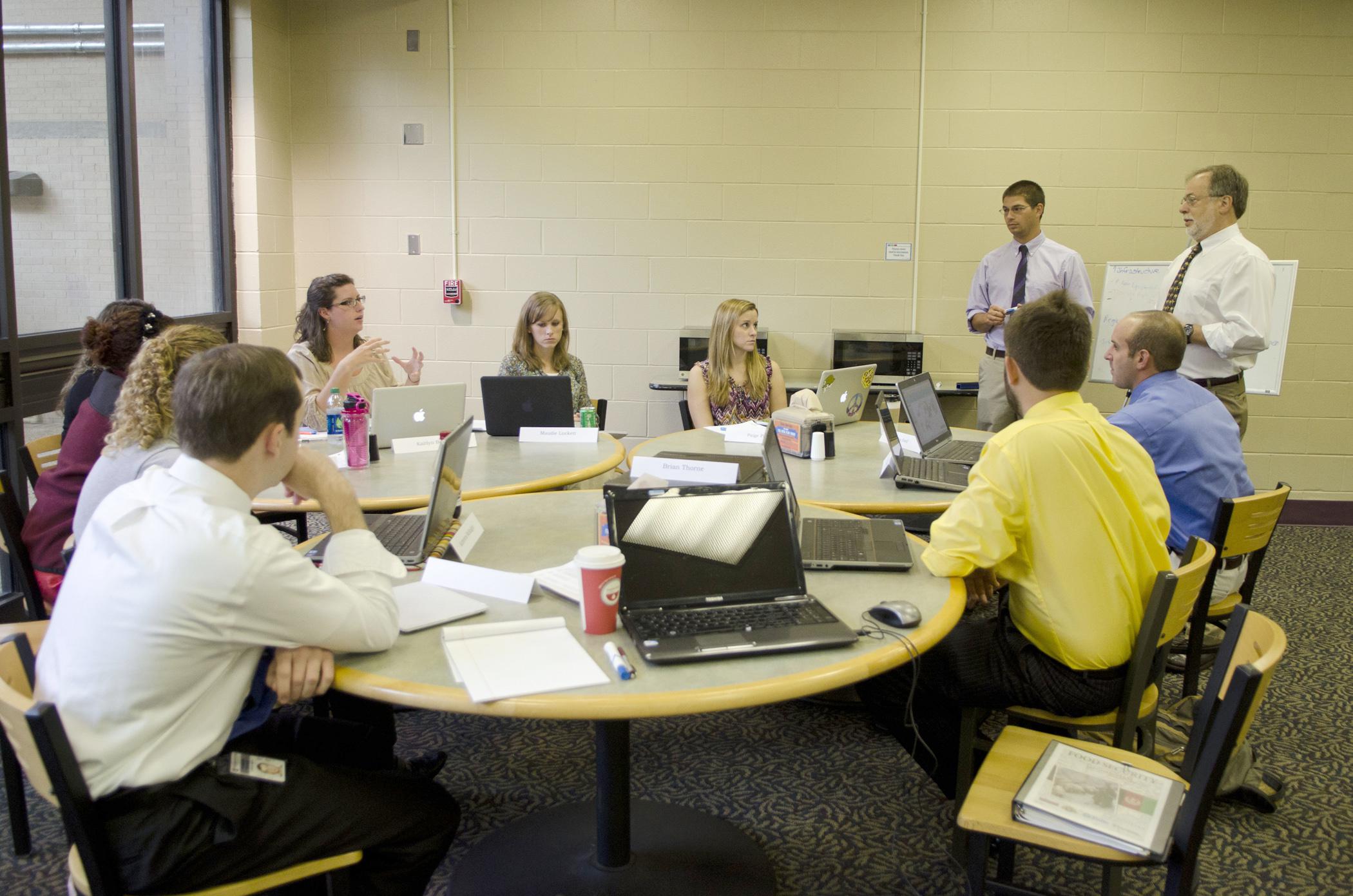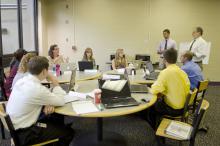Information Possibly Outdated
The information presented on this page was originally released on August 9, 2012. It may not be outdated, but please search our site for more current information. If you plan to quote or reference this information in a publication, please check with the Extension specialist or author before proceeding.
CVM students learn from global experts
MISSISSIPPI STATE – Two global veterinary health experts visited the Mississippi State University College of Veterinary Medicine to show students how veterinarians protect animal and human health.
MSU-CVM students learned about international veterinary medicine’s opportunities and challenges from Dr. David Sherman, international veterinary medical consultant and clinical associate professor at Tufts University Cummings School of Veterinary Medicine, and Dr. Gary Vroegindewey, director of the Global Health Initiatives at the Virginia-Maryland College of Veterinary Medicine.
“While globalization has provided many benefits, it also has created many new challenges, particularly regarding animal, human and environmental health,” Sherman said. “While food animal production contributes significantly to the livelihoods of hundreds of millions of people worldwide, it is important for those going into veterinary medicine to understand the food safety issues associated with food moving around the world.”
Sherman and Vroegindewey helped students see how they could one day help protect the food supply.
“Veterinarians are on the front line of globalization,” Sherman said. “Whether they work in a small practice or at the federal level, almost every veterinarian will be impacted by globalization. They are among the first to recognize and diagnose diseases that can affect animal and human health and the food supply.”
Vroegindewey said MSU-CVM’s reputation for educating students about international veterinary medicine is impressive.
“We’ve been to about 20 U.S. colleges of veterinary medicine, and the number of students at MSU-CVM who have traveled internationally to work or volunteer in veterinary medicine is about twice that of what we’ve seen,” Vroegindewey said. “Students today are becoming much more aware of how global veterinary medicine can be a part of their work and how they can provide services to improve public health and international trade.”
Second-year veterinary student Andrew Nelson discovered that global veterinary medicine is a field that would connect him to the rest of the world and allow him to collaborate across disciplines.
“I really enjoy working with colleagues to discuss agriculture and veterinary medicine,” he said. “I hope to apply my background in animal and dairy science and my studies in veterinary medicine on a global scale.”
Writer: Karen Templeton




